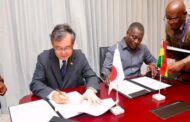Pentecost International Worship Center (PIWC-Koforidua) under The Church of Pentecost has initiated anti-suicidal ideation intervention aimed at rescuing persons with suicidal thoughts and making their resilience.
The Church has therefore unveiled a hotline for counseling and support for persons with suicidal thoughts.
The decision of the Church comes in the face of rising suicide cases in the country, particularly among teenagers.
The Resident Pastor of PIWC-Koforidua Pastor Musa Yahaya says, a counseling and prayer team has been constituted to respond to anyone who reaches out for help.
Many suicides happen impulsively in moments of crisis with a breakdown in the ability to deal with life stresses, such as financial problems, unemployment, relationship break-up, or chronic pain and illness.
Additionally, experiencing abuse, or loss and a sense of isolation have been established to be strongly associated with suicidal behavior.
It has been projected that the ravaging impact of Coronavirus on the economy and jobs which has deepened economic afflictions could trigger a rise in suicide.
Two children ages 9 and 14, and two young females ages 24 and 27 allegedly committed suicide in May this year in Ghana.
A Nine (9) year old boy Christian Bobie Ansah allegedly committed suicide by hanging in Sunyani while a 14-year-old final year student of Miracle Educational Academy Junior High School (JHS) at Sunyani in the Bono Region, Leticia Kyere Pinaman, allegedly committed suicide at about 6:30 pm on Monday, May 17, 2021, while the students had converged at the school’s church auditorium for Bible studies.
Meanwhile, a 24 years old woman -Herty Eshun, also committed suicide by hanging at CP, a suburb of Kasoa in the Awutu Senya East Municipality in the Central Region the same month.
The cause of her action was attributed to unemployment.
A 27-year-old newly posted female teacher also committed suicide at Assin Foso in the Assin Central Municipality in the Central Region the same month.
The cause of death is not known.
According to the World Health Organization, suicide is a serious public health problem; however, suicides are preventable with timely, evidence-based, and often low-cost interventions.
Ironically, Suicide has been criminalized in the laws of Ghana which persons caught attempting suicide are prosecuted.
Even though there is accurate data on suicide cases in Ghana, it is estimated that 1500 persons commit suicide every year in the country.
Globally, close to 800 000 people take their own life and there are many more people who attempt suicide.
Ingestion of pesticide, hanging, and firearms are among the most common methods of suicide globally
Suicide occurs throughout the lifespan and was the second leading cause of death among 15-29 year-olds globally in 2016, according to WHO.
Suicide does not just occur in high-income countries but is a global phenomenon in all regions of the world. Over 79% of global suicides occurred in low- and middle-income countries in 2016.
Every suicide is a tragedy that has a far-reaching effect on families, communities, and entire countries and has long-lasting effects on the people left behind.
According to the WHO, national responses to suicide must be effective, a comprehensive multi sectoral suicide prevention strategy.
The Chief Executive Officer of Mental Health Authority Dr. Kwasi Osei has emphasized a repeal of Sec 57 Clause 2 of the 1960 Criminal Code of Ghana which criminalizes suicide.
He has also called for revamping Ghana’s mental health system to become effective in various districts to help curb the growing menace of suicide.
Source: Mybrytfmonline.com/Obed Ansah




















































